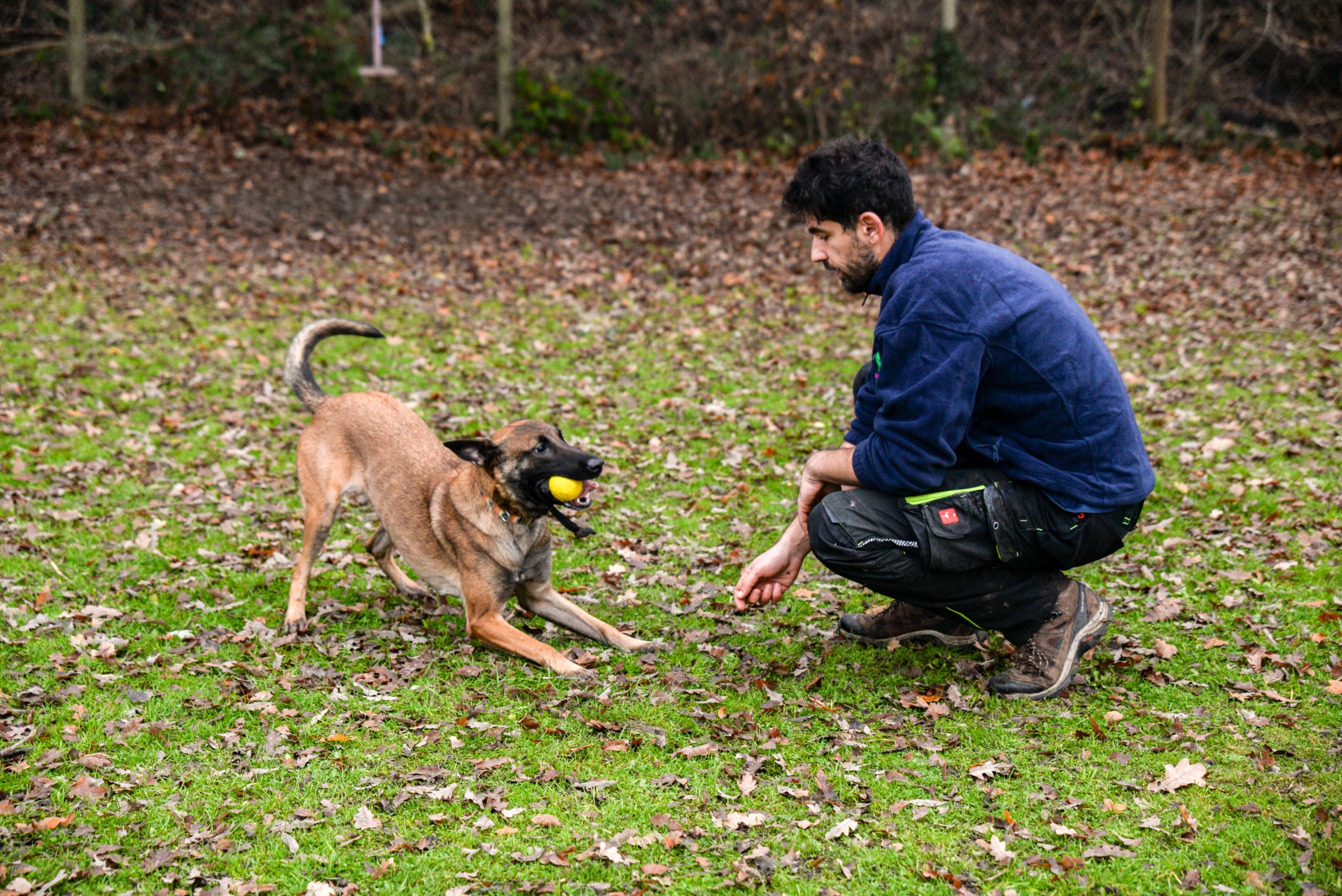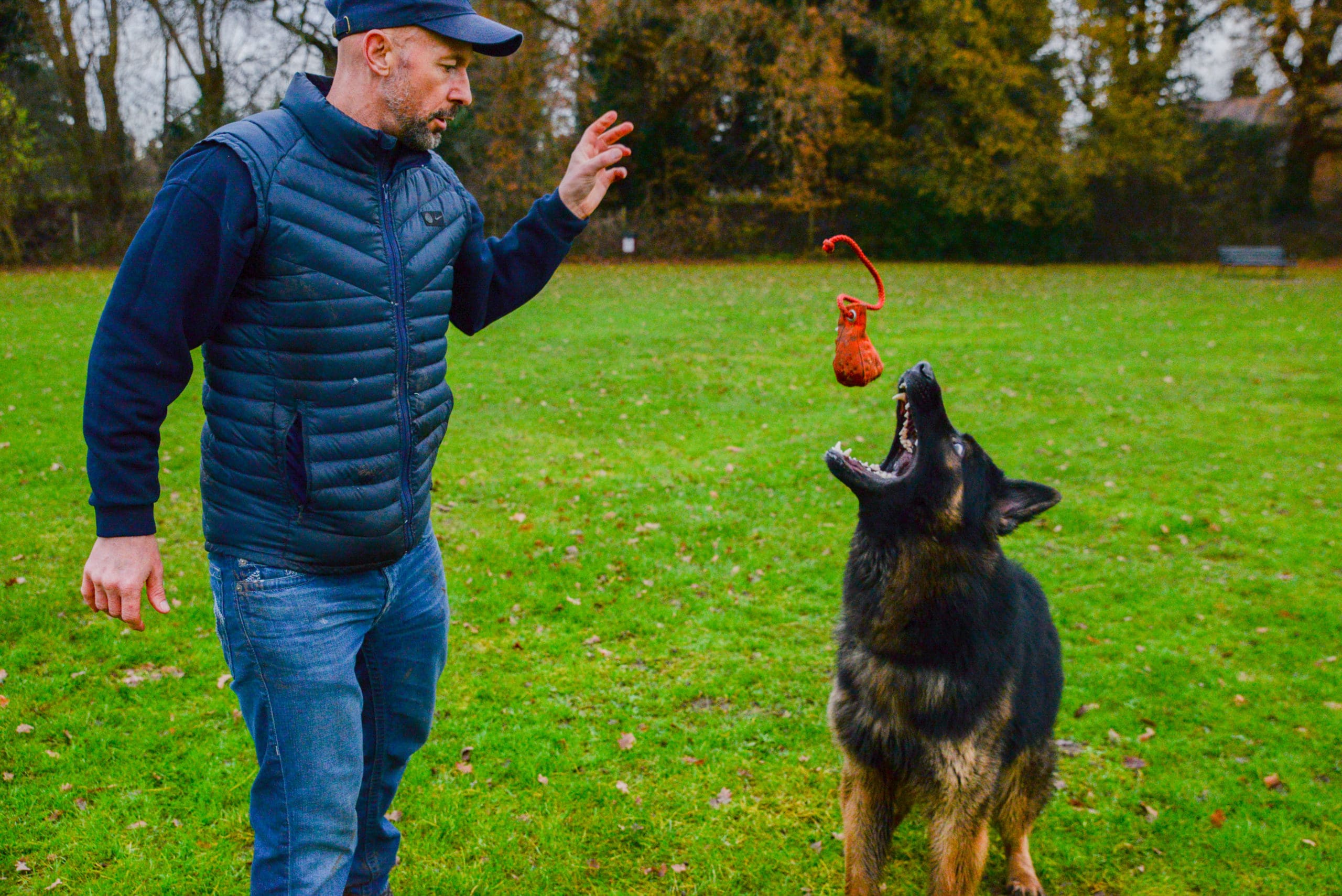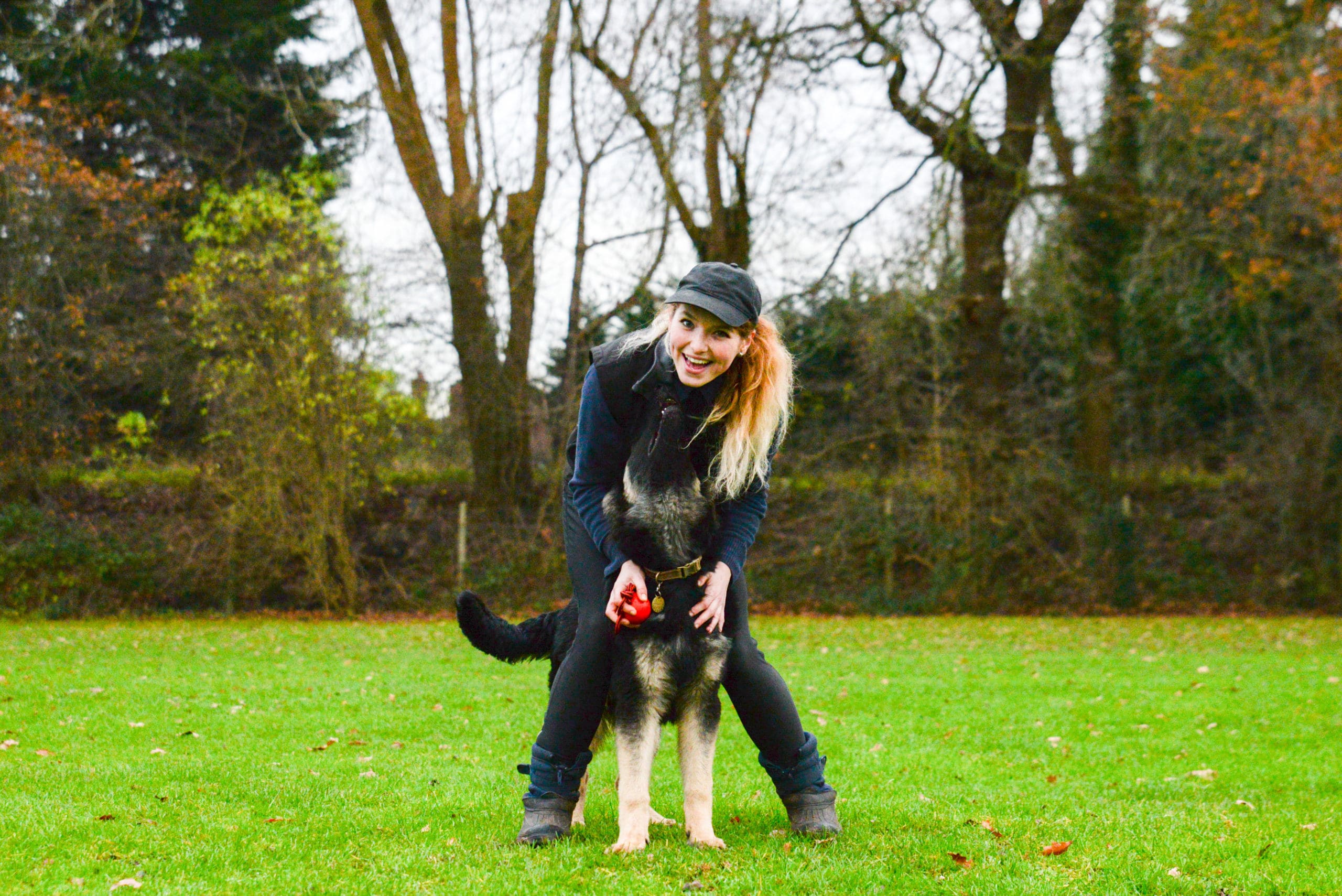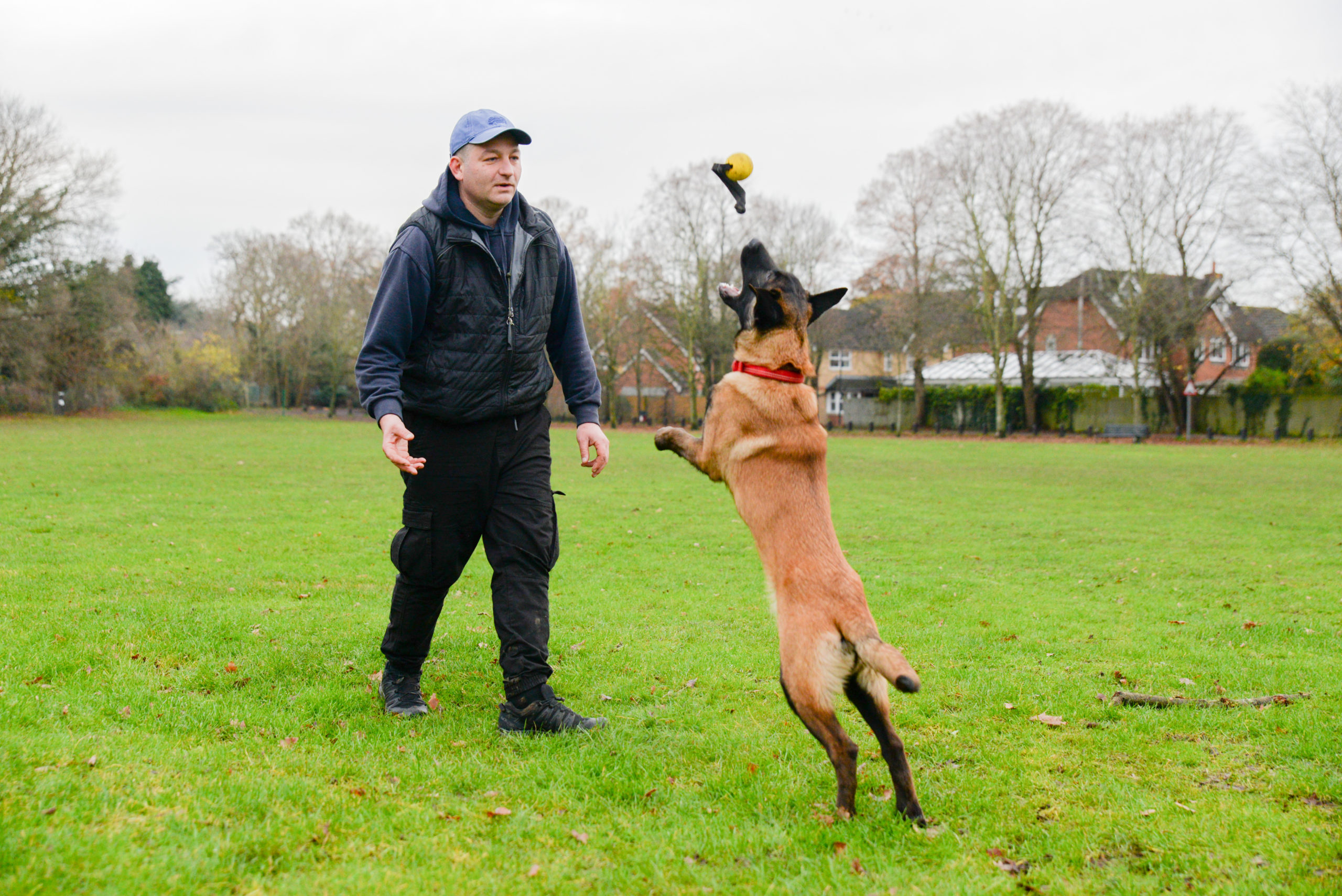Every dog owner wants a dog that’s well-behaved, fully-trained, and happy, of course. There are many steps to success to achieve this, and one of them that is sometimes overlooked is play. In this article, we’ll be talking about the importance of play for your dog, whether they are a puppy or an adult. There are many reasons why play is important and shouldn’t be overlooked if you want a well-trained dog whose main focus is you, their owner!
As with virtually any industry, we tend to see people come to us at Royvon with the same issues time and time again. For us, probably the most common issue that people experience is that their puppy used to listen to them but now, as they develop into an adult, they don’t listen any more. This means that they are constantly on the lead while out and about as it’s not safe to let them off it, which is no fun for the dog or the owner! When dogs don’t have the enrichment they need, they can easily develop behavioural problems. These can be reactivity, aggression, separation anxiety, and many more. But, we know how easy it is for this not to be the case! Owners need to involve appropriate play into both their training time and their hanging out time together with their dog.
However, we know how easy it is to fall into this trap. A lot of the messaging out there on how to develop a well-trained dog doesn’t really focus on the importance of play at all. As a result, it’s usually only serious training enthusiasts and experienced dog owners that learn all about this. The rest of the dog owners are left thinking, ‘where did I go wrong?’ They see other dog owners who have well-trained dogs and wonder what they have done right. Then, they end up settling for the hand they’ve been dealt and a dog that they can’t take anywhere off the lead. This is a really common problem that we see at Royvon, so we wanted to take this opportunity to educate dog owners about the importance of play!

The importance of play
Playing with your dog is a really enjoyable experience and a fundamental part of positive dog training, which we are huge advocates for. Play is vital for puppies and adult dogs alike. Many owners who are keen to train their dogs will do endless formal exercises with them, with little playtime. This is boring for your dog. The result of this often is, as soon as your pup sees another dog or a wide open space, they’re off to get the play they need! Further down the line, it will also be a lot harder to get them to listen to you, because they are not getting all the mental enrichment they need from you.
Dogs have an innate instinct to play, they just don’t know how to do it appropriately. It’s up to us as their owners to teach them how to do it! When owners involve lots of play in training, dogs love to engage. Without play, it’s often the opposite. But, it can be hard when owners themselves aren’t quite sure on the best methods. We always advise games that help your dog with recall and focus as these are some of the most fundamental elements of dog training. For this, food games and toy games are great. You can also incorporate movement to help aid your dog’s training even further. You can read more about the use of movement in dog training in this blog post:
Why are some dogs so focussed on their owners? Using movement to motivate
Dog owners love showering their dogs with affection, love and cuddles. Of course, we are always going to love our dogs, no matter what! However, involving this love with play is a great way to train your dog to exhibit positive behaviours and do what you want them to do. Play shows your dog that they don’t get rewards for free. With play, they must work for them by chasing, catching a treat, playing tug of war, following their owner, and more. You can also incorporate formal training elements such as sit and stay into your games. The dog gets rewards for doing the activity itself, so it will be more motivated to do it in the future.

How can play help avoid future issues?
At Royvon, our main business is residential training. Our main customers here are people who are struggling with problems with their dog that they cannot resolve. Their life with their dog has become a problem that needs intensive expert training to solve. The reason all these people are having problems is essentially down to an ineffective environment and training. It’s really not the dog owner’s fault. They want the best for their dog after all. There’s just so much information out there that it’s hard to know what the essentials, such as play, are. However, dogs and owners that learn the essentials, such as play, early on never need residential training. Ultimately, dog training is all about using the right positive methods from the outset, to avoid further problems down the line, and play is one of them. Residential training means that your dog will stay with us to be trained for three weeks. Not all customers want to leave their dogs for this long, but they have little choice. Fortunately, they are very happy with their decisions once their dog has been trained effectively, which involved rewarding their dogs with play and other positive rewards. But, involving play and other positive methods from the outset should mean that residential training isn’t needed at all.
It’s unfortunately impossible to teach you how to effectively play with your dog in an article. Owners first need to learn about the different types of play and how to perform each type. The nature of play needs to be fun for that individual puppy or dog. Just like humans, different dogs will enjoy different things. We are always more than happy to help owners out with this issue during our training sessions. We have many routes to teach owners both the importance of play and how to do it. We know it’s not easy and it’s so easy to try and give up, but we are here to support you. With owner cooperation, we will guide you through the process for your individual dog so that you soon perfect your skills, see results, and develop an amazingly-trained dog. And, we have routes to suit everyone, from puppy classes, 1-2-1 individual sessions, or our residential programme. Please get in touch to find out more about our options and which one is right for your unique situation.
Overall, we hope that this article has shown you just how important play is for training your dog at any age. If you want to go from being a confused dog owner who doesn’t know where to turn, to a proud dog owner who can take their pup anywhere with them, don’t ignore the importance of play! You don’t need to settle for the hand that you’ve been dealt. With the right positive training methods and plenty of effective play, you dog should develop into a happy, fully-trained pup for the whole family to enjoy.





Leave A Comment